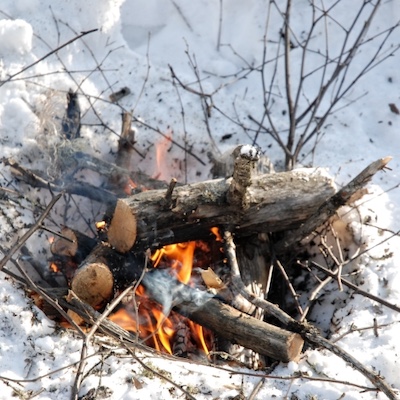Winter Camping Basics
camping
*This is targeted for people who live in places where it will actually get cold and snow during the winter months.
Let’s be honest, winter isn’t everyone’s favorite season. It’s usually cold, cloudy, and quite frankly a little depressing at times. At least for me, I quite enjoy sticking to the climate-controlled safety of my house during most of the winter. That being said, there is something about getting out when the world looks like a winter wonderland. Even though it may be bitter cold, something draws me outside to enjoy the fresh, freezing air. One thing which I enjoy doing when this happens is camping.
“Camping!?” you might ask, “you must be losing your mind! Why would you ever go camping in the middle of winter!?” While I can’t guarantee that I’m not a little crazy (the cold can do strange things to your mind), I can explain how it is that camping in the winter is done, and how it can actually be enjoyable. So get out your heavy coats and get ready to go camping!
As any good Boy Scout knows (or anyone who has spent any time camping), it is important to “Be Prepared”. And while being prepared is important in any situation, I feel that it is especially important to be prepared, or even over-prepared, for winter activities. The first thing to determine is how you are going to protect yourself from the elements. Depending on where you are you could face snow, sleet, rain, freezing rain, or a combination of precipitation types. If snow is all that will come out of the sky, then my favorite way to spend the night outside is in a snow cave.
Snow caves are by far the most enjoyable way to camp outside when it’s cold if for no other reason than that it will stay around 32 degrees Fahrenheit all night. Out of context, 32 degrees sounds cold, and it certainly is, but when it’s below 0 outside then 32 feels quite balmy! The disadvantage of using a snow cave is the initial construction of your shelter. Fun fact, snow caves are not one of the products of spontaneous generation, as much as I would like them to just appear wherever I wanted to camp. You have to actually work to build your frozen fortress. I won’t go into the details of snow caves in this article, but check out my Building Snow Caves post for more info! (future post)
Sadly, there are many places that aren’t blessed with enough, or any, snow to build a snow cave. If this is the case for you, or if it is above freezing and your snow is starting to melt, I’d advise moving somewhere colder. Just kidding, fortunately, tents still work in the cold. If you have access to one, a Four Season Tent is a great addition to your winter camping gear. These tents generally have thicker walls and provide more insulation to keep you warm. A normal tent will suffice too if you aren’t able to get your hands on one of these warmer tents.
No matter what type of shelter you are using you’ll want a warm sleeping bag and sleeping pad. There will be more specifics on helping you know what to look for in these pieces of equipment in a future article. Staying warm is generally your highest priority when winter camping and for good reason. If you’re cold it is very hard to enjoy yourself.
When planning your meals, choose something warm, hearty, and generally pretty simple. I have found that simplicity can be your best friend when camping, especially when it’s cold.
As always with outdoor activities, it is recommended to have a buddy, or at least let someone know where you and how long you are planning on being gone. There are inherent dangers with spending long periods of time in the cold and having someone with you can help you combat some of them. One of the most overlooked, but possibly the most important, is dehydration. Now, you may be thinking, I know that staying hydrated is a big deal when it’s really hot outside because you’ll sweat a lot of moisture out, but being dehydrated in the winter? That doesn’t make a lot of sense. When I first started camping in the winter, I thought it was a little ridiculous too, but that’s why dehydration is such a real danger when the temperature is cold. We don’t think that we need as much water so we don’t drink as much. But what isn’t as apparent is the fact that our bodies use a lot of energy trying to stay warm, and if we don’t have enough water we will be much colder. So remember, keep drinking water! As painful as it may be to need to use the bathroom in the middle of the night when it’s freezing cold, dehydration is much, much worse.
So rather than curling up on the couch in front of a fireplace, go huddle next to a campfire underneath the blanket of the milky-way. Stay safe and be prepared!
 Backcountry Basics
Backcountry Basics